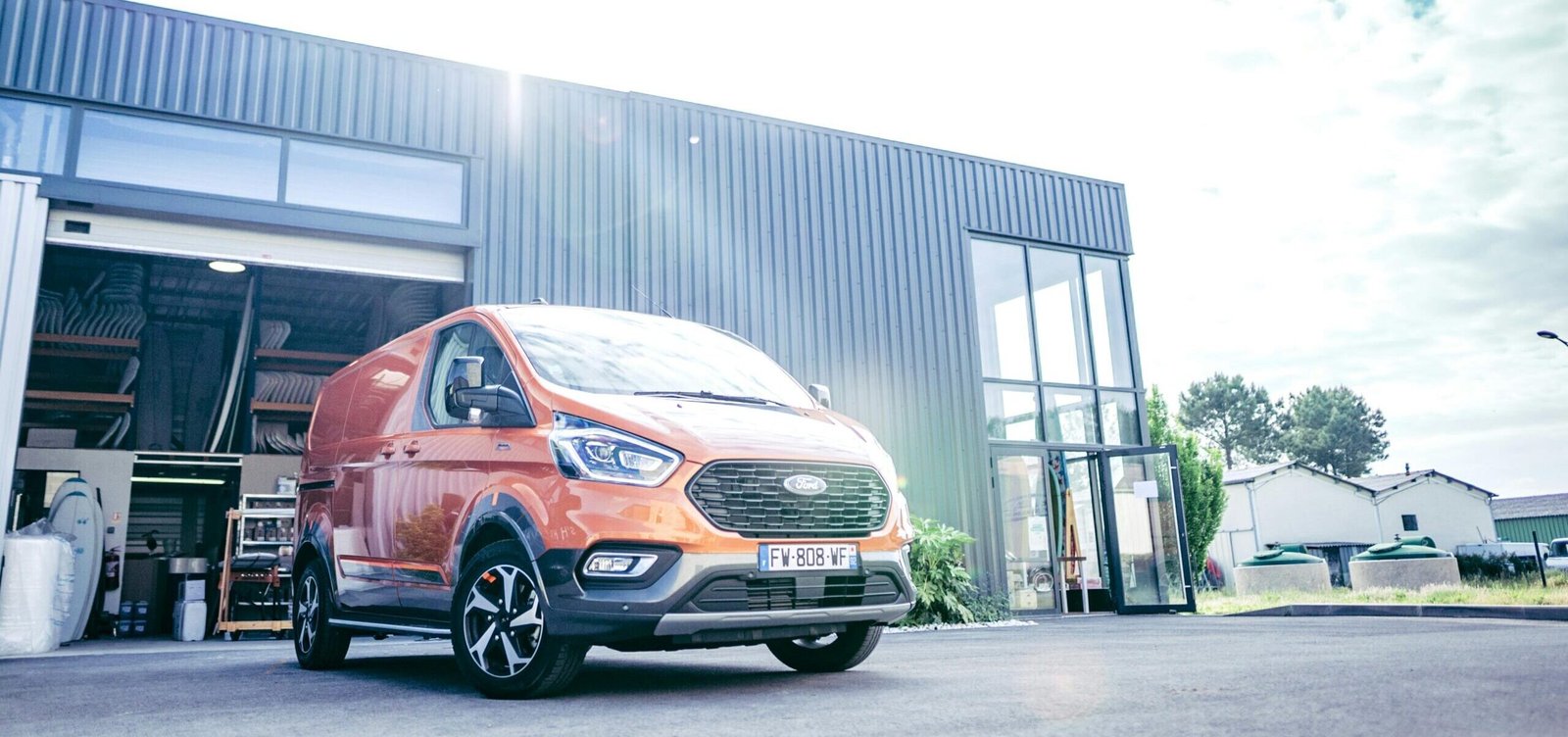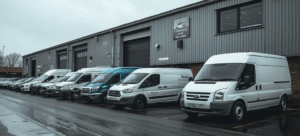Running a business often means needing vehicles, machinery, tools, or office equipment to operate efficiently. However, paying the full cost upfront is not always practical, especially when cash needs to be reserved for wages, rent, stock, or day-to-day expenses.
This is where structured payment options such as hire purchase and leasing become valuable. Instead of tying up large amounts of capital in a single purchase, businesses can spread costs over time and keep cash available for growth and stability.
For example, rather than spending a full budget on one delivery vehicle, a business could allocate that same money across multiple areas — equipment, technology, and operational tools — while repaying them monthly. When structured correctly, this approach allows businesses to generate more value from assets than the cost of repayments.
This guide explains how hire purchase and leasing work, how they differ, and how businesses across various industries use them to access essential equipment.
What Is Hire Purchase?
Hire purchase is a method of acquiring business equipment through staged payments. A business pays an initial deposit, followed by fixed monthly repayments over an agreed term. Once the final payment is made, ownership of the asset transfers to the business.
This option is well suited to equipment or vehicles that will remain useful for many years. Because the business ultimately owns the asset, it can continue using it without further payments once the agreement ends.
For example, a company acquiring a delivery van through hire purchase will pay monthly instalments. After the agreement is completed, the van becomes a permanent business asset, with no restrictions on mileage or usage.
What Is Leasing?
Leasing allows a business to use equipment without owning it. Instead of purchasing the asset, the business pays regular instalments for the right to use it over a fixed period.
At the end of the agreement, the equipment is typically returned, upgraded, or replaced with a newer model. Leasing is often chosen when lower monthly payments are preferred or when the equipment may become outdated quickly.
This option is common for technology, vehicles, or machinery that businesses may want to update regularly rather than keep long-term.
How Hire Purchase and Leasing Work in Practice
With hire purchase, repayments are fixed and agreed in advance, making budgeting straightforward. Ownership transfers at the end of the agreement, and the asset appears as part of the business’s long-term resources.
With leasing, the business commits to a usage period rather than ownership. Monthly payments are usually lower, but the asset does not become part of the business’s owned equipment. Conditions such as mileage limits or usage restrictions may apply.
In both cases, it is essential to understand the contract terms, including repayment length, maintenance responsibilities, and what happens if circumstances change.
What Can Businesses Acquire Using These Options?
Hire purchase and leasing are commonly used for:
-
Manufacturing and engineering equipment
-
Construction machinery
-
IT equipment such as computers and servers
-
Office furniture and specialist tools
If an asset improves how a business operates or generates income, it is often suitable for one of these funding structures.
How Different Industries Use Hire Purchase and Leasing
Construction
Construction businesses frequently require heavy machinery such as excavators, cranes, and specialist equipment. Hire purchase is often used when machinery will be kept for long-term use. Leasing can be more suitable for short-term contracts or specialist equipment needed for a limited project.
For example, a growing construction firm may need a specific machine for a single contract lasting just over a year. Leasing avoids the high rental costs and long-term ownership risk associated with purchasing outright.
Logistics and Transport
Logistics companies use these options to access lorries, trailers, and fleet technology. Businesses planning to keep vehicles for many years often prefer ownership through staged payments, while those regularly updating fleets may choose leasing to maintain modern vehicles.
General Business and Office-Based Companies
Offices commonly use leasing for computers, printers, and technology that becomes outdated quickly. More permanent fixtures, such as desks or storage units, are often acquired through hire purchase.
Plant Hire
Plant hire companies rely on a wide range of equipment. Ownership works well for frequently rented items, while leasing can support short-term or seasonal demand without long-term commitment.
Printing and Manufacturing
Printing businesses and manufacturers often invest in high-value machinery used daily. Structured ownership allows them to spread costs while building long-term asset value. Leasing may be used to trial new technology without committing to permanent ownership.
Engineering
Engineering firms require precision tools and machinery. If the equipment remains relevant for many years, ownership is usually preferred. Where technology evolves rapidly, leasing provides flexibility and reduces the risk of obsolescence.
Professional Services
Professional firms such as law practices, consultancies, and design agencies often lease vehicles and technology due to rapid innovation. More permanent office setups may be better suited to ownership.
How Different Industries Use Hire Purchase and Leasing
Hire Purchase
Advantages
-
Ownership at the end of the agreement
-
Predictable monthly repayments
-
No mileage restrictions
-
Long-term value from owned assets
Drawbacks
-
Higher upfront commitment
-
Business responsible for maintenance and repairs
Leasing
Advantages
-
Lower monthly payments
-
Reduced initial outlay
-
Easy upgrades to newer equipment
-
Often includes maintenance
Drawbacks
-
No ownership of the asset
-
Usage limits may apply
-
Ongoing payments if equipment is replaced
What If a Business Wants to End an Agreement Early?
Early settlement is possible under many agreements, but terms vary.
With hire purchase, businesses may settle early, often reducing the amount of interest paid if more than half of the agreement has been completed. A settlement figure may apply.
With leasing, early termination usually requires paying a portion of the remaining agreement value, as payments are based on usage rather than ownership.
Understanding these terms before signing is critical.
Tax, Accounting, and Maintenance Considerations
Hire purchase agreements may allow capital allowances, reducing taxable profits. Leasing payments are often treated as allowable business expenses.
From an accounting perspective, owned assets appear on the balance sheet, while leased equipment is treated differently. Maintenance responsibilities also differ, with leasing often including servicing.
Professional advice is recommended to determine the most suitable option.
How to Apply
Applications typically require basic business details, financial information, and asset specifications. Approval depends on affordability, trading history, and credit profile.
Working with an experienced broker can simplify the process and help secure suitable terms.
Choosing the Right Option
The decision depends on practical questions:
-
Will the equipment still be useful in several years?
-
Is ownership important?
-
Is flexibility more valuable than permanence?
-
What level of monthly payment is manageable?
Many businesses use a mix of both options, depending on the asset.
Final Thoughts
Hire purchase and leasing offer practical ways for businesses to access essential equipment without draining capital. One prioritises ownership and long-term value, while the other focuses on flexibility and lower monthly costs.
Used correctly, both options support sustainable growth and operational efficiency. The key is choosing the structure that aligns with how long the asset will be needed and how the business plans to grow.
Ready to Make Asset Finance Work for Your Business?
Partner with MacManus Asset Finance Ltd, an independent broker established in 2005, helping UK SMEs access tailored finance solutions. Our friendly, professional, and consultative team works across all industries and can guide you through hire purchase, leasing, and finance lease options. With access to over 60 finance companies and full FCA authorisation, we ensure your business finds the right solution for growth.









